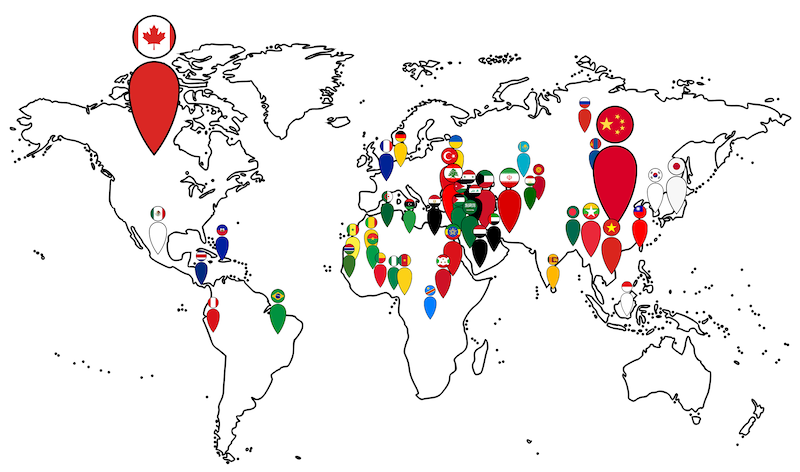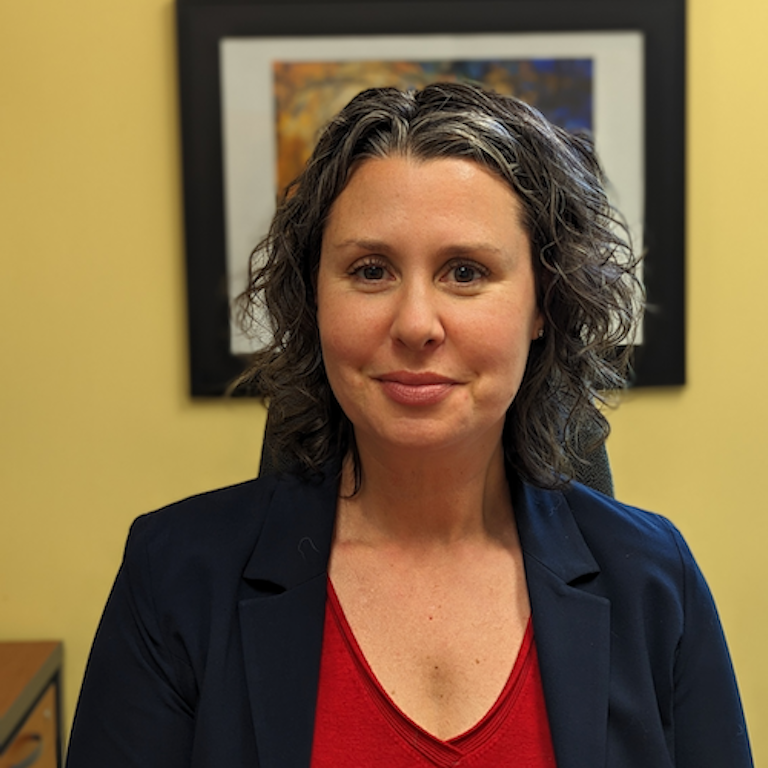Credit ESL (ESLA)
The School of Linguistics and Language Studies (SLaLS) offers three levels of credit ESLA courses (ESLA 1300, ESLA 1500, ESLA 1900) to improve your academic English in stages. The courses have been developed to target both language skills (reading, writing, listening, and speaking) and the research and study skills that you need in order to:
Be successful in your academic studies at Carleton University
Improve your English proficiency for admission to graduate program
Be employed in the Canadian workforce
ESLA courses are open to individuals who, after submitting an English language test score, meet the proficiency requirements and have been admitted to Carleton. ESLA courses are not open to native speakers of English.
Depending on your English proficiency and the ESL placement you receive from us, you may start your ESLA studies at the introductory, intermediate, or advanced level.
English as a Second Language (ESL) Requirements
English Language Proficiency at Carleton University
Learn more about admissions and English language requirements for future students.
Read more about English Language Proficiency (Section 4 of the Carleton University calendar).
If your English language test score is below the acceptable level for admission to Carleton University, you are not permitted to register in ESLA, nor any other credit courses at the University.
Applicants for graduate studies should contact the department offering the graduate program for more information.
Our Academic ESL courses offer you the opportunity to start your studies before you have satisfied Carleton’s English as a Second Language Requirements (ESLR).
As an admitted ESLR student, you may study ESLA and:
- be a degree student studying in a degree program (undergraduate or graduate) or a special student (taking courses but not admitted to a degree program);
- complete some courses in your academic program; and
- earn credit towards your degree (review item 2.2.6 in the calendar entry).
Frequently Asked Questions (FAQ)
Browse through our Frequently Asked Questions (FAQ) for more insights into our ESLA courses and the English as a Second Language Requirements (ESLR).
ESLA Contact Form
If you have any additional questions, please get in touch with us using the ESLA Contact Form.
About Our Students
Students in ESLA courses are diverse, not only in terms of their language and country of origin (international and domestic), but also with respect to their program of study and student status.
In the past three years, students from over 50 countries around the world have enrolled in ESLA courses.

About Our Courses
All levels of ESLA credit courses are designed to help you develop the language skills required for successful academic study and the learning strategies that can help you achieve this success.
-
- are small to enhance your learning experience.
- are one term in duration with 6 hours of instruction per week (plus an additional 2-hour language development group for ESLA 1300 students).
- are offered during the summer (May to August), fall (September to December), and winter (January to April) terms.
- focus on learning academic vocabulary development and language skills, such as paraphrasing, referencing, reading for main points, note taking, listening for key ideas, and defining and synthesizing relevant information.
- introduce you to the kinds of listening and reading materials, writing and oral presentation assignments, and standards of work expected for success at university.
- help you to acquire new research and study skills by completing a variety of assignments typical of first and second year university courses.
- strengthen critical thinking, communication, and problem solving skills.
- familiarize you to university resources and support services and encourage you to participate in university activities.
Meet Our Instructors
Julie McCarroll

Hello! I have been teaching English as a Second Language for Academic Purposes (ESLA) at Carleton University since 2013. Before that, I taught ESL in Taiwan and English for Academic Purposes (EAP) at a private school in Ottawa. In 2018, I was awarded an Innovation Grant from Carleton University for research on ePorfolios as well as a Teaching Award. In 2021, I received the Favourite Faculty Award. In 2023, I was awarded the Excellence in Blended and Online Teaching Award. I hope to meet you soon!
Mike Murphy

I grew up in Montreal, a city with many languages and cultures, and I learned both English and French from a young age. This gave me a life-long interest in understanding languages and learning about different cultures.
I’ve taught in Carleton University’s ESLA program since 2017. Before that, I spent five years teaching English at the University of British Columbia (2012-17) in Vancouver.
I have two Master’s degrees, one in Applied Linguistics (Birmingham University) and the other in English literature (Concordia, 2006). I also hold a CELTA certificate in teaching English as an additional language.
Spending time with my partner and our two boys and hanging out with friends are my favourite things to do outside of work. I also enjoy reading (in both English and French), exercising (jogging or riding my bike), and going to live music events.
Meet Our ESLA Ambassador
Being a new university student can be a challenge. This challenge is multiplied many times when you are studying in a new and unfamiliar city, country, and language. This is why we created the role of ESLA Student Ambassador.

If you have questions about what to expect in your ESLA courses, how to prepare for your classes, and how to be successful in your studies, consider reaching out to this year’s Ambassador, Abdullah Baqais.
Abdullah is currently studying Renewable and Sustainable Energy Engineering at Carleton University, and is passionate about language learning, new experiences, and connecting with people from different cultures. As the ESLA Ambassador, Abdullah is excited to meet new students and share what life at Carleton has to offer.